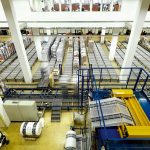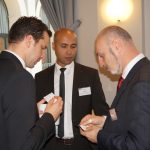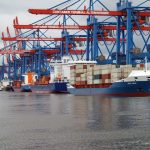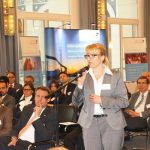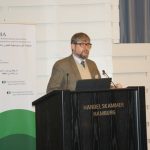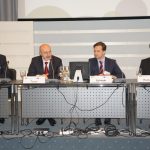Cooperation partners
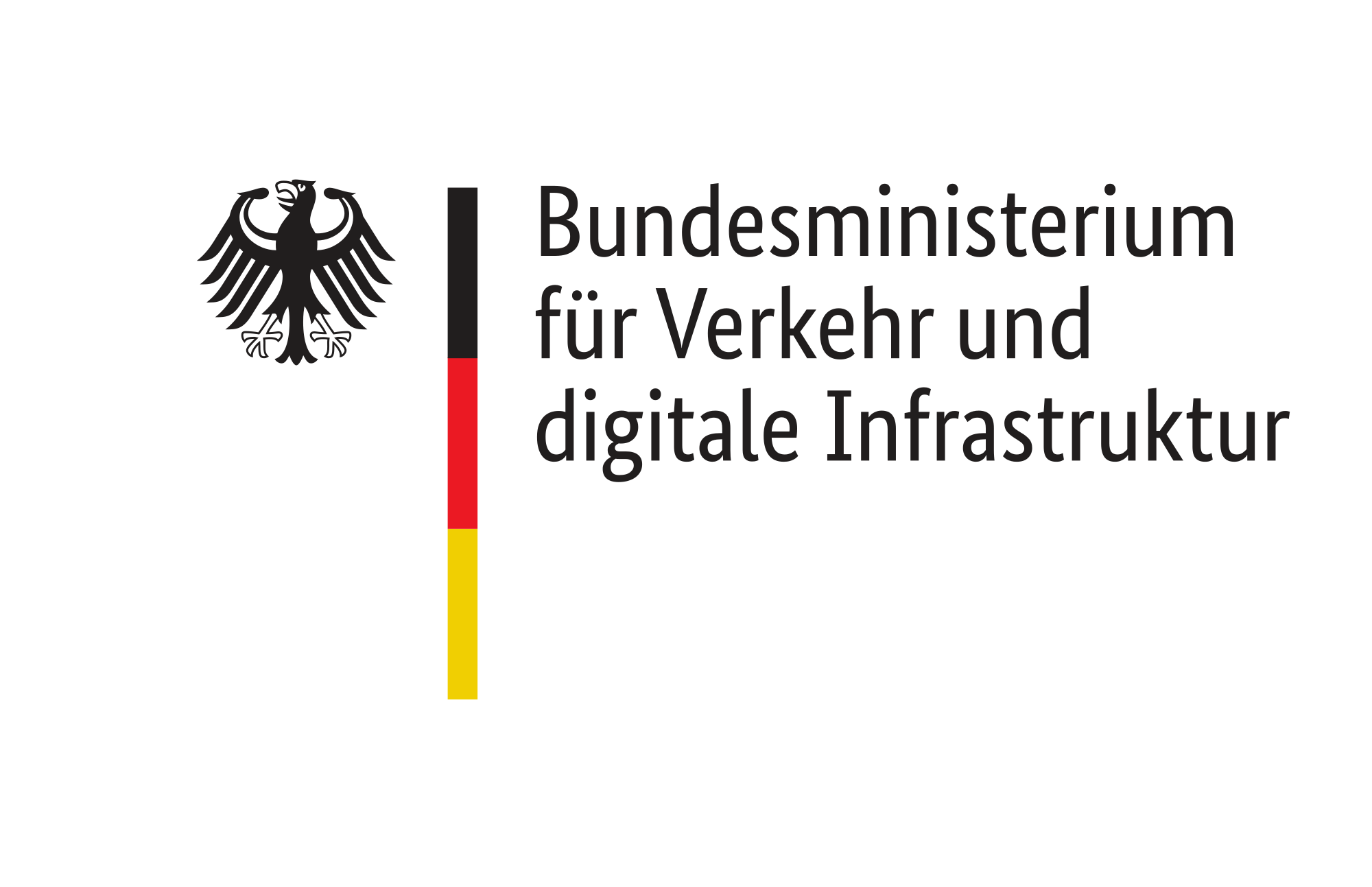
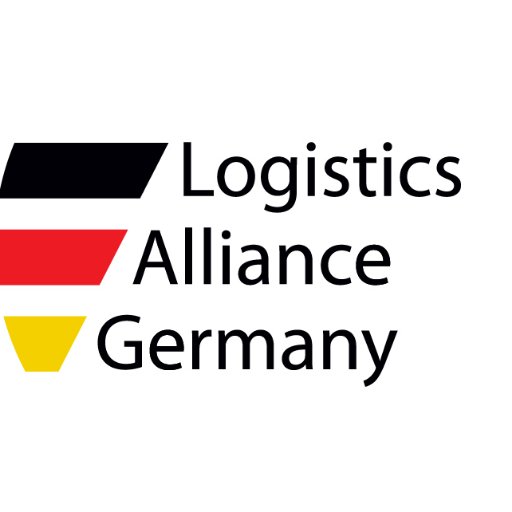



Supporters

Media partners

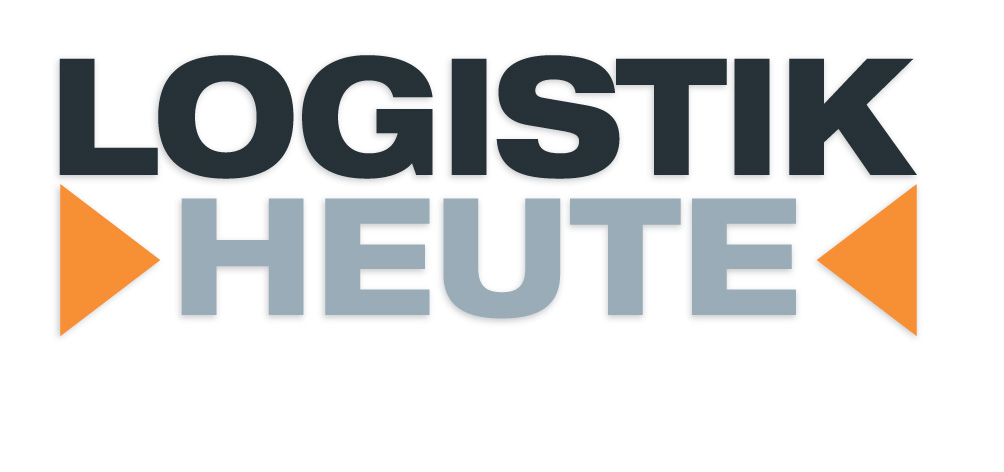



Event partners
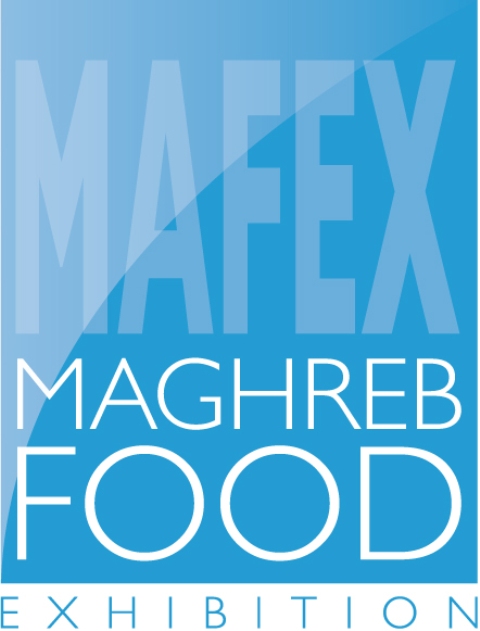
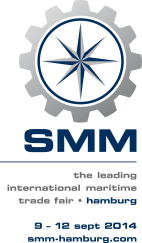
The 2nd German-Arab Logistics Forum
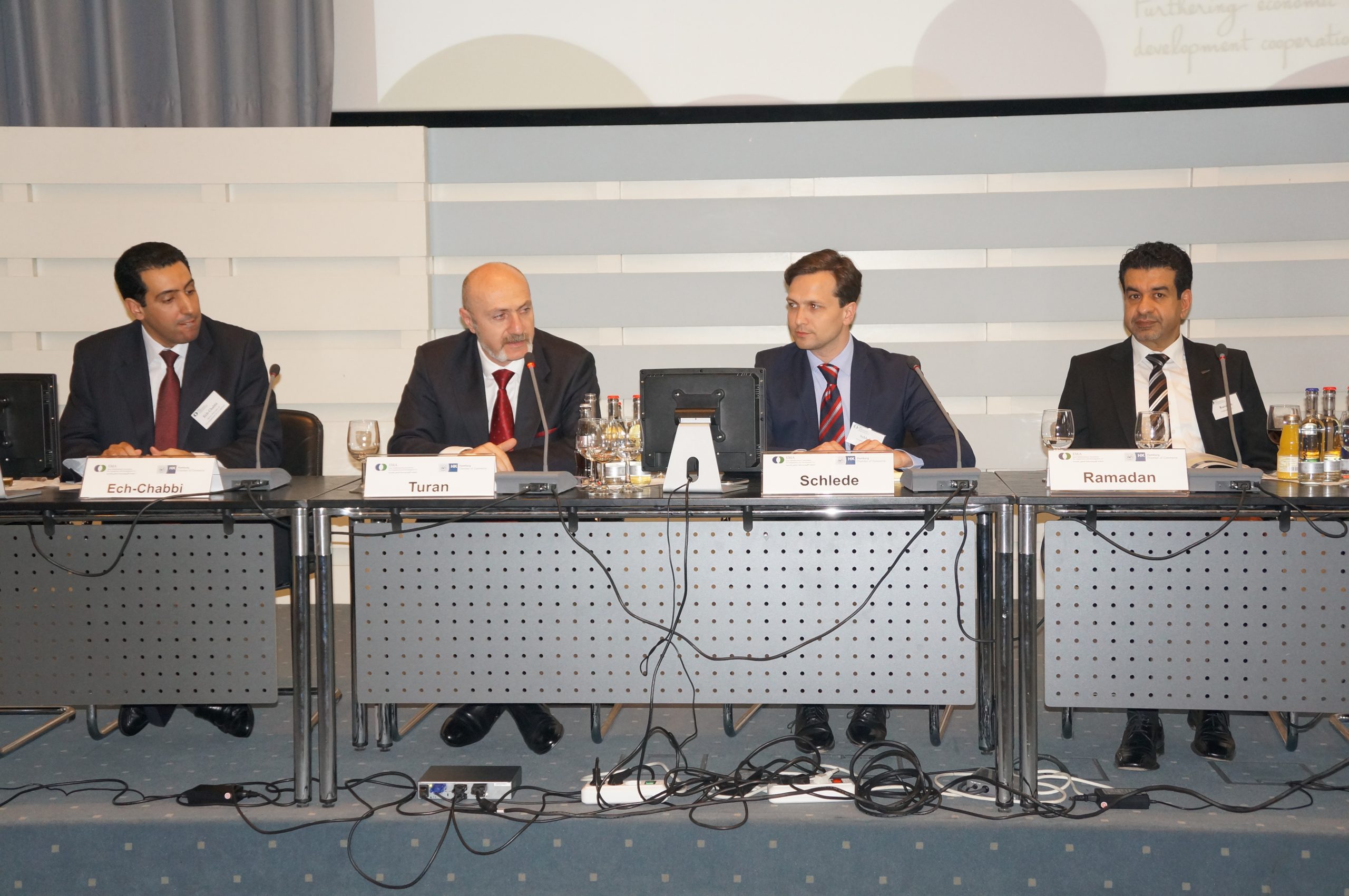
- April 28, 2014 - April 29, 2014
- 28 April 2014: Conference, Hamburg Chamber of Commerce | Business Dinner 29 April 2014: Company site visits & b2b exchange, Hamburg
New challenges in transportation, safety and sustainability concerns as well as the attractive growth rate of the EMA region provide the impetus to create another dimension of economic cooperation in the framework of the:
The 2nd German-Arab Logistics Forum
Logistics as the Junction of all Trade Relations
Patronage:
Dorothee Bär, Member of the German Bundestag
Parliamentary State Secretary at the Federal Ministry of Transport and Digital Infrastructure
Federal Government Coordinator for Freight Transport and Logistics
28 April 2014: Conference, Hamburg Chamber of Commerce | Business Dinner
29 April 2014: Company site visits & b2b exchange, Hamburg
The aim of the conference is to offer procurement logistics and expanding users of logistics providers of the SMEs the opportunity to discuss current challenges, tendencies and solutions in import and export, infrastructure and trade with stakeholders and international experts of the logistics sector, such as:
- H.E. Mona Kamal, Ambassador of the Leage of Arab States Mission Berlin
- Ministry of Foreign Affairs and Cooperation, Mauritania
- Kemal Erimtan, President, German-Turkish Chamber of Commerce and Industry in Istanbul, Turkey
- Marwan Ghaiti, Board Member /Deputy Secretary General, Amman Chamber of Commerce, Jordan
- A delegation of the Saudi Arabian General Investment Authority (SAGIA), Saudi Arabia
- A delegation of Emirati entrepreneurs headed by Kanchan R. Vora, Director of the Supply Chain and Logistics Group (SCLG), UAE
- A delegation of Iraqi entrepreneurs headed by Sami Kashkool, President, Iraqi-British Chamber of Commerce, Republic of Iraq
- A delegation of Moroccan entrpreneurs headed by the Ministry of Equipment and Transport, Kingdom of Morocco
Logistics as a hub of all trade relations
In continuation of the “Logistics Forum for the EMA Region”, established in 2011, the Free and Hanseatic City of Hamburg as a logistics hub in the global economy offered the ideal location for this year’s “2nd German Arab Logistics Forum”, which was taking place as an initiative of the EMA under the slogan Logistics as a hub of all trade relations from 28th to 29th of April 2014.
The Forum was opened with a full-day conference in the Hamburg Chamber of Commerce on April 28th, where the current main topics of the logistics industry were presented in individual panels by regional and international experts and subsequently discussed with the audience.
Ms. Adelheid Sailer-Schuster, President of the EMA, and Mr. Köppen, Head Office of Economic Development, Foreign Trade and Agricultural Economics of the Ministry of Economics, Transport and Innovation of the Free and Hanseatic City of Hamburg, stressed in their opening speeches the importance of the German-Arab cooperation in the logistics sector. The process is already in progress, noted Ms. Sailer-Schuster, however, the expansion and improvement in logistics remain are still important projects.
Panel I: Green Logistics
With the concept of electric vehicles by Meyer & Meyer GmbH, the presentation “Green Logistics – Across all Modes” by Dr.-Ing. Clausen, and of the “King Abdullah Economic City” in the Kingdom of Saudi Arabia, extremely innovative projects within the framework of sustainability were presented. The Saudi representative of the King Abdullah Economic City, Rayan Qutub pointed out that the infrastructure, which is elementary for the implementation of the green logistics, is not the case in developing countries such as Saudi Arabia for example. The chairman, Prof. Dr. Haasis from the Bremen Institute of Maritime Economy finally made it clear that he faces the idea of green logistics optimistically: “Green Logistics is a new philosophy and it is absolutely necessary to realize green solutions soon.”
Panel II: Port Logistics
Port logistics was an intensively debated topic at this year’s Forum. Mr. Bullwinkel, Director of JadeWeserPort GmbH, offered with the presentation of the third largest port in Germany a prime example of sustainable ports, which are also designed for mega-freights. Furthermore, Afshin Ghassemi, Represenative of the Jafza Jebel Ali Free Zone (JAFZA) and Economic Zones World, presented the idea of a free trade area in the United Arab Emirates. Prof. Dr. Schinas, Head of Maritime Business School at the Hamburg School of Business Administration, gave a fascinating insight into the new railway infrastructure in Oman. When one talks about port logistics, one does not only schematize the transport of goods, but also the provision of services and passenger transportation. The development of ports, which are designed for huge container ships, will further provide exciting developments. The chairman of the panel, Dr. Wülfing, Attorney, stressed the importance of new port projects and praised first beginnings to sustainability in port logistics.
Panel III: Supply Chain Management
Complex and dynamic supplier and customer networks form the Supply Chain Management. Mr. Ech-Chabbi of the Moroccan Agency for Logistics Development held a fascinating lecture on the geostrategic advantages of Morocco in competition for the largest logistics base for the future. Hakim Ramadan, Regional Director of the MENA Region at Jungheinrich Export AG & Co. KG, spoke about the efficient management of supplier networks and specially developed machines. In addition, Kayihan Turan of UTIKAD Turkey spoke about the BALO project, which intends to strongly improve the transportation links between Europe and Asia, with Turkey as a central hub. In the ensuing discussion under the moderation of Mr. Schlede, Consultant at Newmex Consulting, it was made claer that the railway is seen as a key element for the transportation sector.
Panel IV: Traffic, Mobility and Infrastructure
“Traffic, mobility and infrastructure mean everything”, affirmed Mr. Gliem, Cluster Manager of the Logistics Initiative Hamburg and chairman of the panel. He drew attention to the differences between the EMA region and Germany, for example in infrastructure, which developed in the Arab region with high speed. Whether in Germany or the EMA region, the priorities are on both sides put on mobility. Omur Gebes, general manager of the GTI Turkey, offered a remarkable insight into the modernization of the boarder gates and trade in Turkey. Mr. Schönewolf of the Fraunhofer Institute presented the electrically driven truck “Swap Body” to an interested audience and the enormous potential in the sake of sustainability and pioneering new technology, which led in the discussion to the issue of feasibility and how the idea of electric vehicles is realizable in general.
To the question, why customers should admit to a service with the label “Green Logistics” and therefore expect a potentially higher price, Mr. Schönewolf answered that customers participate in such a model, because it reduces the CO² footprint of their own as well as of their enterprises. He referred to the growing trend towards greater environmental awareness. By asking: “How can we learn from each other?” the panel but also the entire event may be described which was dominated entirely by greater cooperation and know-how transfer.
Panel V: Security and Transport
As a central theme of logistics – security and transport – many exciting aspects have been apprehended. Ms. Mamozai, Attorney for Security and Trade, introduced the audience in the risks of deep sea shipping, resulting in that it is necessary to identify the risk before they come into existence. Mr. Hrori, Director of the German-Iraqi Kanar GmbH, pointed out that projects in developing countries with high security risks can still be performed and with the right precautions may well be successful. Logistics must be understood as a hub. The Arab regions offer lucrative bases that, in cooperation with European companies, can lead to successful results.
The 2nd German-Arab Logistics Forum offered participants in-depth information and interesting contacts. In the final statement it was repeatedly emphasized that the exchange between the companies and the countries was very enlightening. Through this event, the EMA offered a profound foundation for future development cooperation. “The future starts today”, Prof. Dr. Haasis resulted in the closing statement, while Mr. Gliem and Dr. Jäger both stressed the urgency of a 3rd German-Arab Logistics Forum to be organized.
The 2nd German-Arab Logistic Forum thereby once again offered thought provoking discussions and provided the ideal setting to network, to discuss and to identify potential solutions. The 150 participants mainly from the small and medium-sized companies in Germany and the EMA Region agreed that the logistics sector is exposed in a globalized world with new challenges, which can only be managed in joint action. At the end of the successful opening of the event, the delegation met with the participants for an exclusive gala dinner at the historic premises of the Anglo-German Club to further deepen the discussions in a friendly atmosphere.
The Framework Programme
The following day with company visits and B2B-meetings in the port of Hamburg followed the success of the conference and offered the 30-member group of international participants a unique insight into the highly innovative logistics structures of Hamburg. At the beginning, Mr. Rehbom, logistics manager of the Gebr Heinemann Logistics Center SE & Co. KG, welcomed the visitors in Allermöhe. After a very informative presentation of the company, the participants were encouraged to ask questions. Following, there was a guided tour of the logistics center offering the opportunity to see the processes and procedures from goods receipt to goods issue, and to be impressed by the fully automated process.
Subsequently, the delegation was personally welcomed in the state-of-the-art Container Terminal Altenwerder by Dr. Kasiske, HPC Hamburg Port Consulting GmbH. After an informative presentation of the ultra-modern container terminals, the handling of the containers has been explained according to a round trip on site. Tthis way, the participants could make up their own minds about the high level of automation and the unique technology of the terminal. The many questions of the participants during the presentation and the visit reflected the great interest. Finally, the Framework Programme ended in the restaurant “Parliament” in Hamburg City Hall, during which the participants had a lively discussion about the conference as well as the visits and deepened their new business contacts. It was a perfect end in purpose of an effective German-Arab cooperation.

